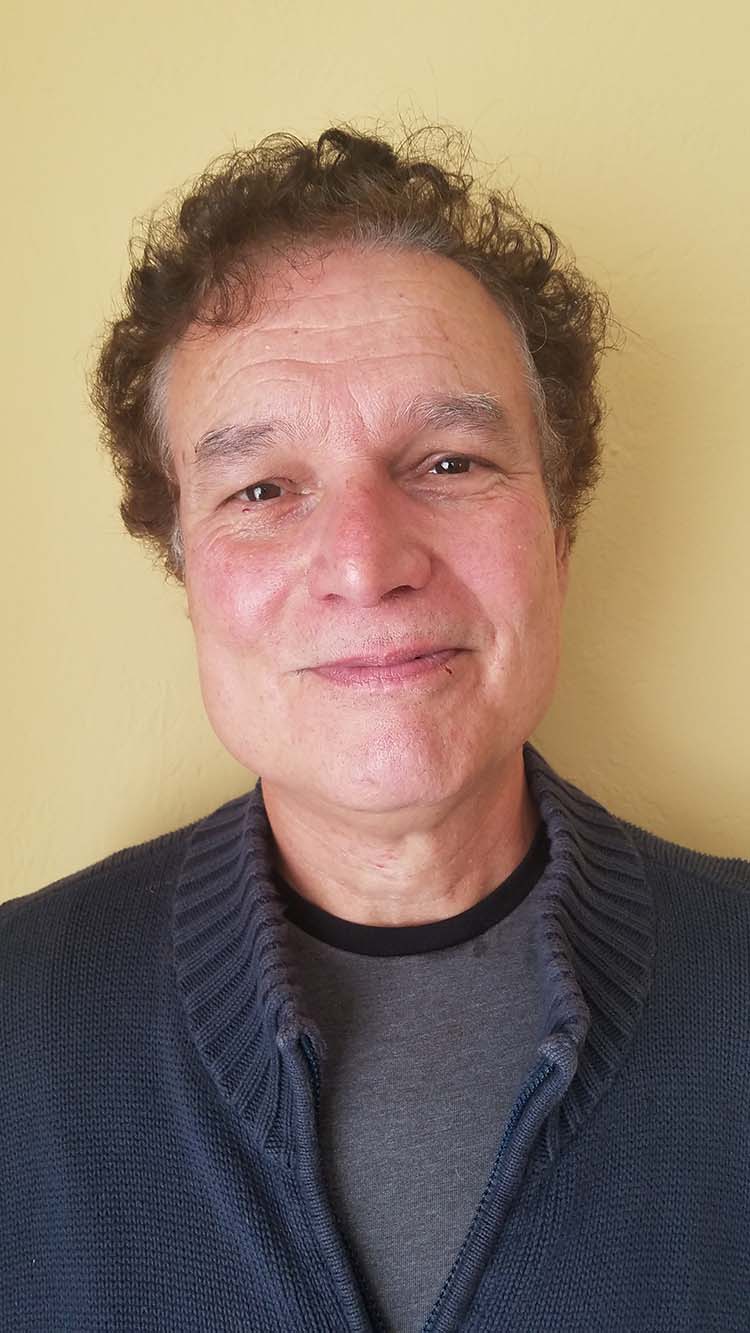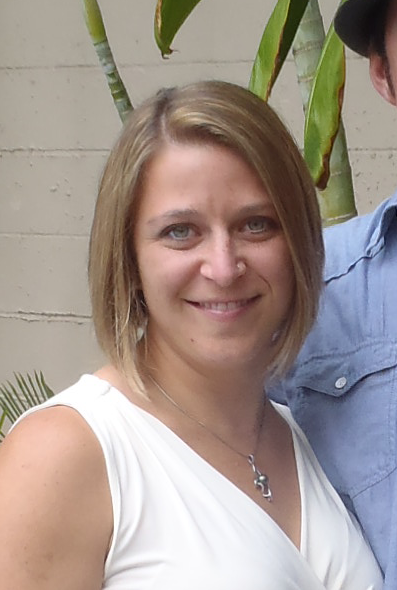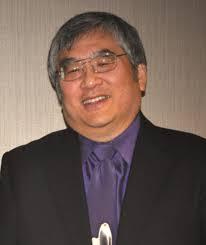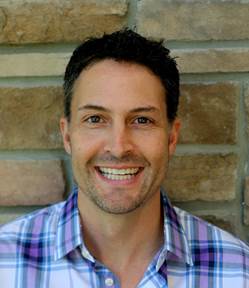An account is required to join the Society, renew annual memberships online, register for the Annual Meeting, and access the journals Practicing Anthropology and Human Organization
- Hello Guest!|Log In | Register
Candidates for Board Member
Michael Duke
 Michael R. Duke, Ph.D.
Michael R. Duke, Ph.D.
University of California San Francisco
CV
I am the Director of Qualitative Research at the Benioff Homelessness and Housing Initiative at the University of California San Francisco’s Center for Vulnerable Populations. Prior to this position, I was an Associate Professor at the University of Memphis.
My policy-framed research focuses on identifying and addressing the mechanisms of structural vulnerability that negatively impact the health and well-being of socially marginalized populations in the United States, particularly immigrant communities, the working poor, and people experiencing homelessness. I have authored or co-authored over 65 peer reviewed publications, reports, and editorials, and consult frequently on qualitative and mixed methods research, community-based participatory research, and other methodological topics. Some of my recent articles appear in the Oxford Research Encyclopedia of Anthropology; Medical Anthropology Quarterly; Journal of Workplace Behavioral Health; and Trauma, Violence, & Abuse.
I have over fifteen years of leadership experience in academic and non-academic settings. These experiences include serving as Co-Chair for the Consortium of Practicing and Applied Anthropology Programs (National Association for the Practice of Anthropology, 2016-2020); Board member for Latino Memphis (2013-2017); Founder and Co-Chair of the Anthropology and Mental Health Interest Group (Society for Medical Anthropology, 2012-2019); member of the Faculty Senate (University of Memphis, 2011-2018); and Co-Chair of the Bay Area Association of Practicing Anthropologists (2005-2011).
As a long-standing member of SfAA, I would welcome the opportunity to support the organization’s important mission in advancing the training, professionalization, and career development of applied anthropologists. I am particularly interested in working with the Board to develop strategies for increasing the number of anthropologists of color at SfAA, as they remain woefully under-represented both within our membership and in the field more generally. Additionally, in the context of the COVID pandemic’s emotional and professional toll on our members—particularly students—I would welcome the opportunity to develop initiatives to enhance the mental health and well-being of our colleagues. Thank you for your kind consideration.
Cynthia Grace-McCaskey
 Cynthia A. Grace-McCaskey, Ph.D.
Cynthia A. Grace-McCaskey, Ph.D.
Department of Anthropology & Coastal Studies Institute
East Carolina University
CV
I am honored and excited to be nominated for a position on the SfAA Board. I have been an active member of the SfAA since I was a graduate student in 2006. From the first meeting I attended, I have always been impressed by how welcoming and inclusive the association and its members have been. I am an applied environmental anthropologist, and my research focuses on marine resource management and community resilience, emphasizing the need to increase community engagement and participation in management and planning processes. Prior to joining East Carolina University’s Department of Anthropology and Coastal Studies Institute in 2016, I worked for NOAA Fisheries (via University of Hawaii’s Joint Institute for Marine and Atmospheric Research), giving me valuable experience collaborating and conducting research in both agency-based and academic contexts. In addition to regularly organizing panels, contributing papers to the annual meetings, and being an active member of the Fisheries and Coastal Communities and Risk and Disasters TIGs, I served on the SfAA 2021 Conference Program Committee and the Local Arrangements Committee. In addition to my roles with the SfAA, I have served on several institutional advisory groups and committees charged with developing interdisciplinary programming, agenda setting, and forging new working relationships and partnerships. Serving in these positions has provided me with experience and skills that will be valuable as a member of the board. The SfAA has played an important role in my development as an applied anthropologist, and so I have a strong desire to serve the SfAA in a more significant capacity. If elected to the board, I will work to increase collaboration and build cooperative initiatives among TIGs as well as with other closely aligned organizations, such as the Political Ecology Society. In addition, based on my experience working on interdisciplinary research teams related to fisheries, climate change, and environmental justice, I understand the need to further develop our ability as anthropologists to effectively communicate the important contributions the discipline can make to addressing real world, global “wicked” problems such as climate change and public health disparities. For this reason, I would also be interested in spearheading initiatives related to promoting effective interdisciplinary collaboration and communication.
Teresa Johnson
 Teresa R. Johnson, Ph.D.
Teresa R. Johnson, Ph.D.
Associate Professor of Marine Policy, School of Marine Sciences
University of Maine
CV
Dr. Teresa Johnson is an associate professor at the University of Maine. A broadly trained and interdisciplinary social scientist, Dr. Johnson completed her PhD in the Department of Human Ecology at Rutgers University in 2007, and also holds degrees in marine policy, government, environmental studies, and biology. Her research aims to understand and improve the efficacy of participatory approaches to science and management and to empower stakeholder and community engagement in policy, with focus on the human dimensions of fisheries, aquaculture, and marine renewable energy. Her research draws on theories from ecological anthropology, studies of the commons, science and technology studies, and social-ecological systems thinking. She adopts a mix of social science research methods and data sources, including participant observation, interviews, oral histories, document analysis, structured surveys, focus groups, social network analysis, and systems modeling.
Dr. Johnson is experienced leader in transdisciplinary research and has worked to promote the value and the inclusion of social science in such collaborations in order to inform policy. She has collaborated with public, private, and non-private sectors, as well as with natural scientists and engineers. As the Maine Tidal Power Initiative’s Human Dimensions team leader, she led research and stakeholder engagement activities with biophysical scientists and engineers to help inform the development of the first tidal power device delivering energy to the grid in North America. As Co-PI of the Sustainable Ecological Aquaculture Network (SEANET), a $20 million NSF-funded interdisciplinary, multi-institutional research project, she led a diverse team of applied social scientists, while also leading the development of a transdisciplinary research framework for integrating social science, biophysical research, and engineering to inform the sustainable development of marine aquaculture. She collaborates with Maine Sea Grant and Cooperative Extension staff and other marine aquaculture industry and science experts, to offer shellfish and seaweed training to commercial fishermen and other community members. For this work, Dr. Johnson was co-recipient of a National Sea Grant extension and outreach award. Since 2011, she has served as an appointed member of the State of Maine’s Sea Urchin Zone Council, a co-management body consisting of fishing industry and scientific experts, and served on a subcommittee of the State of Maine Governor’s Ocean Energy Taskforce. She is a committed mentor for early career female faculty, and graduate and undergraduate students in STEM. In recognition of her leadership at the University of Maine and to the State of Maine, Dr. Johnson was selected as a University Faculty Fellow, becoming an ambassador to the public on behalf of the University’s Land and Sea Grant missions.
In addition to her research, Dr. Johnson teaches graduate and undergraduate courses in marine policy and social science and serves as the University of Maine’s marine policy graduate program coordinator. As most students in her courses and in the marine policy graduate program arrive without training in social science or policy, her teaching and mentoring offers her the opportunity to educate future biophysical scientists and policy-makers about the importance of applied social science in informing policy.
Dr. Johnson attended her first meeting of the Society in 2003 as a PhD student, and has been engaged as a member of the Fisheries Topical Interest Group since its formation. She has organized and co-organized sessions on diverse topics related to marine fisheries, aquaculture, and coastal communities. She is excited about the opportunity to contribute more directly to the Society’s mission of promoting applied social science to today’s complex social and environmental challenges. She is especially interested in creating more opportunities for sharing experiences, knowledge, and best practices across the Society’s diverse membership and supporting graduate students and early career scholars and encouraging their work and engagement in the Society.
Nathaniel Tashima
 Nathaniel (Niel) Tashima, Ph.D.
Nathaniel (Niel) Tashima, Ph.D.
LTG Associates, Inc.
CV
I believe that the Society for Applied Anthropology has the opportunity to lead the discipline into the evolving world that is based in our traditional systems of education and application of our theories and methods. At the same time we must be engaged with the virtual world that is emerging from the COVID-19 pandemic. It is critical that we maintain our focus on the traditional approaches to the four fields of anthropology while the discipline embraces the opportunity for innovation and creative implementation of those traditions.
Through LTG Associates, I have been fortunate to co-lead an organization that embraced innovation, including adopting a virtual approach to both business and anthropology a number of years before the world was forced to reconsider how one could maintain relationships, work as anthropologists, and pursue our values of our discipline in the emerging virtual world. This has led us to think about the relationship of our fieldwork and establishing relations with our respondents via the latest in appropriate and accessible technological tools. We have experimented and found that many times our respondents lead us and that has been a great learning and also a hallmark of how good anthropologists have always worked.
An important part of my work has been to bring the voice of Professional, Practicing and Applied Anthropologists (PPAs) into relationship with the academic aspect of the discipline. I have participated in the SfAA Annual Meetings as a member, have chaired and participated in panels and, I have served on SfAA committees. I would welcome the opportunity to stand for election as a member of the SfAA Board of Directors. I believe that SfAA and the discipline of anthropology is in an important moment of opportunity. I would appreciate the opportunity to help focus SfAA’s vision through the experiences of PPAs to enrich the discipline’s perspective on innovative practices and methods for conducting our work. I think SfAA can be a professional and thought leader for the discipline in charting a dynamic and inclusive approach to engagement with PPAs and uniting the diverse parts of the discipline. The combination of a strong basic anthropological education with a forward view to the myriad ways that PPAs are using the tools of anthropology to make change in the world is critical to the discipline expanding and uniting professional and academic worlds.
Nathaniel (Niel) Tashima, Ph.D. (Northwestern), is one of the two founding and Managing Partners of LTG Associates, Inc. (LTG). LTG was founded in 1982 by Niel and Cathleen Crain on a foundation of anthropology in order to have a platform for affecting the access, appropriateness, and quality of health and human services for both historic and situational minorities, and for those who are vulnerable or at-risk. The firm is now the oldest anthropologically based consulting group in North America.
I joined the anthropology faculty (professional track) at the University of Maryland, College Park, MD in 1999. Over the past two decades, I have regularly provided seminars and participated in departmental events focused on expanding the vison of both undergraduate and graduate students around professional, practicing, and applied anthropological (PPA) careers; this work has been pro bono. I have advanced through the university system and currently hold the rank of full professor (professional track) at the University of Maryland, Department of Anthropology.
Throughout my career, I have worked to create a welcoming space for PPA anthropologists in the discipline and to advance understanding of the needs of and opportunities for PPA anthropologists. I have also been actively engaged in providing a vision of professional anthropology careers for students and their mentors. I frequently provide seminars to anthropology classes in person and by video. And, for a period of five years, we (Cathleen Crain and myself) annually taught classes about what anthropologists do professionally for seven and eight-year-old students.
I began my career working with Asian American, Native Hawaiian and Pacific Island community-based organizations developing culturally appropriate mental health services and organizations. These projects ran counter to the established perception that these communities did not have need for mental health services because they did not appear in service utilization statistics. It was not until these programs began to serve communities that utilization rates began to appear. This initial work lead me into designing and directing the first mental health program for Vietnamese arriving on the U.S. mainland on May 1, 1975 at Camp Pendleton, CA. Over the years, LTG has worked with more than 35 ethnic communities and in more than 50 countries globally to help to make health and human services appropriate and responsive to those who should be served.
For LTG, I have acted as Principal Investigator, Project Director and Senior Research Associate for a variety of projects ranging from local community-based organizations serving Southeast Asian refugee communities, to departments of public health engaged in the prevention of HIV/AIDs. My work has also assisted organizations such as the Native Hawaiian Health Care Systems, the Robert Wood Johnson Foundation, the Centers for Disease Control and Prevention, the U.S. Agency for International Development, and the World Health Organization in developing evaluation and concept development processes that engaged with populations in respectful and sustainable ways.
For ten years, we conducted a NAPA-sponsored Professional Ethics Practicum at the AAA Annual Meetings (1988-1998). The Practicum brought professional anthropologists with real world, current, ethical problems into conversation with an audience of both new and seasoned anthropologists to discuss and pose responses. This Practicum has been, to date, the longest sustained effort to focus on the ethics of anthropology in application.
For approximately twenty years, LTG annually hosted one or more summer research assistants from a college/university close to our offices, providing a professional experience and skills building experience in a professional environment. Either I or Cathleen Crain acted as sponsor and provided oversight to the student during their summer research assistantship. In a number of cases, the summer research assistant received recognition on final reports of projects on which they had worked. This was a heavy investment of both resources and time from the Managing Partners to ensure that the research assistant was ensured a meaningful experience and that their work was part of real contracts.
For LTG, I have co-led teams of anthropologists that have been recognized by the Washington Association of Professional Anthropologists Praxis Award competition a record six times. The Praxis Award “has recognized outstanding achievement in translating anthropological knowledge into action.” The award is a juried competition and LTG’s recognition has encompassed projects that have worked with refugee communities, faith based communities, family strengthening and development of an international approach that focuses on the agency of individuals, families, and communities to direct appropriate responses to their health needs. I have also co-led a team that developed a set of two feature length videos commissioned by the State of California, Department of Health Care Services to focus on innovation in community health access and families raising well children. The videos were included in the SfAA Annal film festival at the SfAA annual meetings in 2018.
My interest is in ensuring that the discipline of anthropology in the United States becomes a responsive home for PPA anthropologists and for students, new graduates, and individuals making career changes.
E. Christian Wells
 E. Christian Wells, Ph.D.
E. Christian Wells, Ph.D.
Department of Anthropology
University of South Florida
CV
Christian Wells — an SfAA Fellow and member since 2005 — is professor of anthropology, director of the Center for Brownfields Research & Redevelopment, and former chief sustainability officer at the University of South Florida. He is an applied environmental anthropologist with over 20 years of experience working to improve human and environmental health outcomes of redevelopment efforts in marginalized communities in the Southeastern U.S., Central America, and the Caribbean. With over $8 million in support from the National Science Foundation, the U.S. Environmental Protection Agency, and other organizations, his research examines the role of equity and sustainability in community redevelopment efforts. He has authored or edited 10 books and journal issues, more than 100 articles and essays, and over 150 conference presentations. His research has been covered by various media outlets, including The New York Times and New Scientist. Dr. Wells is a Fellow of the American Association for the Advancement of Science and is the recipient of the Sierra Club’s Black Bear Award in recognition of outstanding dedication to sustainability and the environment. He currently serves as President-elect of the Florida Brownfields Association, the state’s largest nonprofit advocacy organization dedicated to brownfields redevelopment and improving public health through environmental justice.
Dr. Wells has a long history of service to the profession (most notably the AAA and SAA) and to his community, and currently leads the EPA-funded Center for Brownfields Research and Redevelopment (http://usf.edu/brownfields) at the University of South Florida. The Center was established in 1998 by an act of the Florida Legislature and has as its principle mission to leverage interdisciplinary scientific expertise at USF to inform community-based and participatory research on environmental toxicants, land use legacies, community health, environmental justice, and sustainable and equitable development throughout the state of Florida. The three main goals of the Center are: 1) Engagement…with community partners to identify problems and context-sensitive solutions; 2) Convergence…of multiple perspectives, voices, and approaches for holistic and outcome-driven scientific research; and 3) Translation…of scientific findings for community impact. The Center developed and maintains the Florida Brownfields Redevelopment Atlas, a GIS-based online decision support tool for evaluating social, economic, and environmental data regarding brownfields redevelopment. The Center specializes in providing technical assistance to environmental justice communities and works with brownfields industry partners on environmental data collection and statistical analysis as well as community outreach and education regarding redevelopment resources and opportunities.

Cart
Search